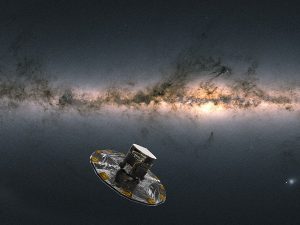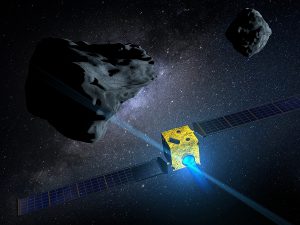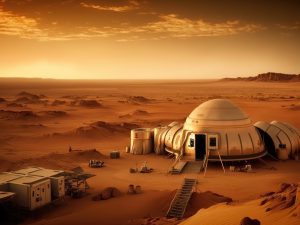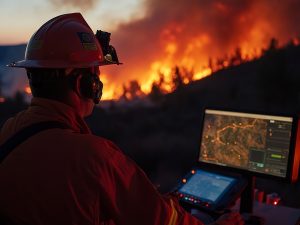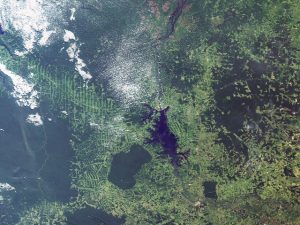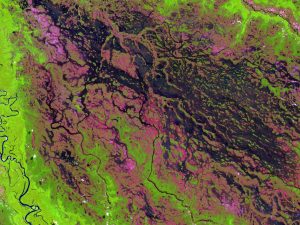
The University of Edinburgh is a specialist in space technologies.
Our researchers work in an extraordinary range of space-related activities: astronomers are tracking the skies for space debris and defending the planet; engineers are making adaptable robots for space exploration and managing fire risks from satellites; and chemists are developing clean-burn rocket fuels. We have teams developing deep-space probes, and others writing literature about space. Our geoscientists are training the next generation within SENSE, the UK's Doctoral Training Centre for Satellite Data in Environmental Science. Our students are even developing their own satellite missions.
The University of Edinburgh aspires to be a Space University, buzzing with top talent and innovation in data science and satellite entrepreneurship. The Edinburgh Space Hub unites experts in engineering, data science, and astronomy to advance space research and technology. It strengthens Edinburgh’s position and promotes growth in the Scottish space sector.
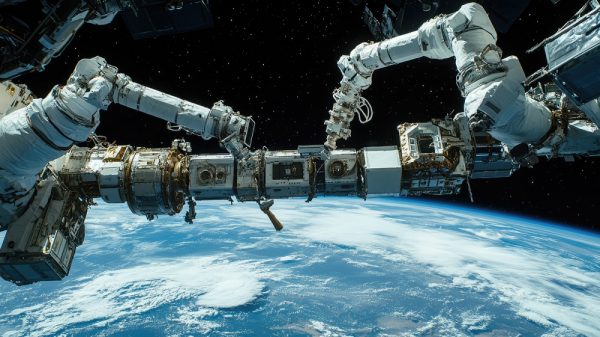
Researchers at the University of Edinburgh's Soft Systems Group push the boundaries of robotics creating flexible and adaptable robots that mimic natural movements. Their systems have applications for space exploration and planetary sampling on the moon, Mars and beyond. To achieve this, the group explores the intersections between electronics and robotic systems, biology and chemistry, physics and fluidic systems. Their bioinspired soft robots can adapt and conform to their surroundings making planetary exploration a reality.
Read about soft robotics and microfluidics
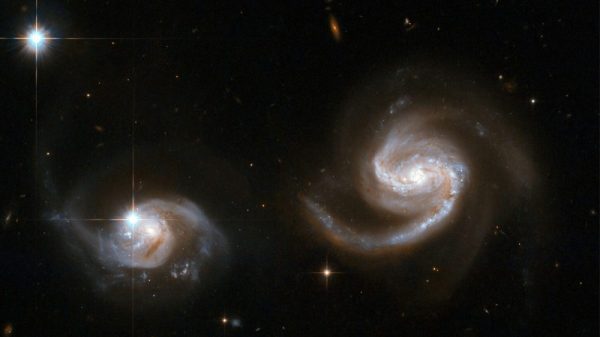
The Institute for Astronomy at the University of Edinburgh focuses on cosmology, galaxy evolution, star formation, and exoplanets. They study dark matter and dark energy (Euclid) while developing cutting-edge astronomical instrumentation. Their expertise contributes to missions like Rosetta, enhancing our understanding of comets; DART, assessing asteroid deflection, and HERA, which further analyses impact outcomes. These connections highlight their role in advancing space exploration and understanding cosmic phenomena.
Read about asteroid deflection and planetary defence
Read about the Gaia Mission - Mapping the Milky Way
Image: NGC 6786, a pair of interacting galaxies displaying the telltale signs of tidal disturbances after a close encounter. Credit: NASA, ESA, STScI, Till Sawala (University of Helsinki), DSS, J. DePasquale (STScI).

The UK Centre for Astrobiology's mission is to discover how habitable worlds form and life emerges, survives, and leaves traces. Expertise covers biology at extreme limits, ancient biosignatures, and the overlap of astrobiology and palaeontology. They study microbiology in space, subsurface environments, and use analogue conditions to examine space exploration. Research also focuses on exoplanets and their potential habitability, supporting sustainable exploration.
The Centre has a range of high profile facilities to simulate extreme environments, study the survival and behaviour of microorganisms, aiding in astro-biological research. They also conduct biological and chemical analysis and test technologies for future space missions.
Read about mining in space.

The Institute for Astronomy at the University of Edinburgh contributes to the sustainable space theme through cutting-edge research and innovation in satellite technology, space debris monitoring (sky survey data management) and mitigation, development of technologies for space weather monitoring, and collaboration on international policies for sustainable space practices. The Institute is focused on the long-term health of the space environment and minimizing human impact closely collaborating with international space agencies to design sustainable space missions. These leaders and their teams work toward ensuring space remains a sustainable environment for future generations.
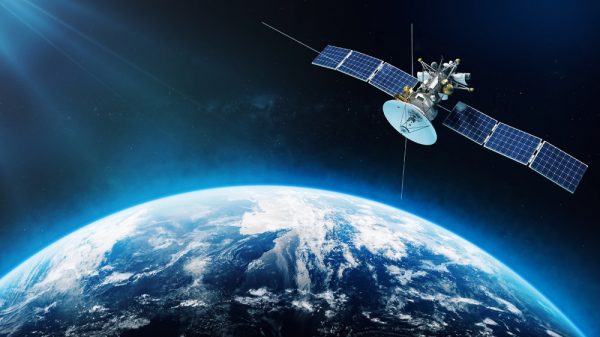
The University of Edinburgh develops expertise in remote sensing through interdisciplinary research, integrating advanced technology, environmental science, and data analysis. Key contributions come from areas such as satellite data processing (airborne research innovation and YT project), climate change monitoring, and land use analysis, wildfire management. The University fosters collaboration across departments, utilising cutting-edge facilities and partnerships with industry and international institutions to advance remote sensing research and education.
Read the Ecometrica case study
Read the Earth Blox case study

The University of Edinburgh is advancing space communications through innovative research on satellite systems, focusing on efficient data transmission and signal processing. Collaborating with international agencies and industry, the university merges expertise from engineering and computer science to tackle challenges like bandwidth and latency.
The University of Edinburgh's strength in space communications lies in its advanced research on satellite systems, electromagnetic design and innovative antenna technology, focusing on efficient data transmission and cutting-edge signal processing. The university integrates interdisciplinary expertise and collaborates with international space agencies and global industry leaders.

The University of Edinburgh is developing a strong presence in space medicine, which engages in interdisciplinary research combining medicine, biology, and space science to address the health challenges faced by astronauts. Collaborative projects and partnerships with space agencies and organisations support the university's efforts in this field. Additionally, the University's expertise in related areas like physiology and life sciences contributes to advancements in space medicine.

The UK Astronomy Technology Centre (UK ATC) is a national centre of excellence for the development of scientific instrumentation and facilities for ground- and space-based astronomy. Based at the Royal Observatory in Edinburgh and operated by STFC, it has a world-class reputation for delivering innovative and capable cameras, spectrometers and even turnkey telescope systems.
Image: James Webb Space Telescope image of NGC 346, a massive star cluster in the Small Magellanic Cloud. Credit: NASA, ESA, CSA, STScI, Olivia C. Jones (UK ATC), Guido De Marchi (ESTEC), Margaret Meixner (USRA).
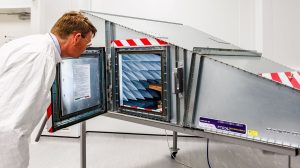
The Higgs Centre for Innovation
brings together world-class research in astronomy and particle physics
and the instrumentation expertise that underpins it, with business
incubation facilities and laboratories suitable for commercial use. The
Science and Technology Facilities Council and the University have a long
history of developing and commercialising revolutionary science and
technology.

The EPSRC and MoD Centre for Doctoral Training (CDT) in Sensing, Processing, and AI for Defence and Security (SPADS) will train the next generation of defence scientists: engineers, computer scientists, and mathematicians, capable of leading developments in generation-after-next information and communication technologies that are poised to transform the world of defence and security along with broader civilian society. This will be addressed by developing interconnected technology and sensing modalities working across multiple sensing domains, leveraging advances in autonomy, embedded systems, and AI across both software/algorithms and hardware.
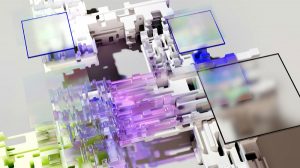
The Centre for Doctoral Training (CDT) in Machine Learning Systems is a PhD programme with integrated studies offering cutting-edge training and research across the full-stack of Machine Learning Systems, ranging from hardware, software and compilers through to ML models, applications and ethics. Improvement of ML Systems drives resource and energy efficiencies to improve AI/ML applications across a variety of sectors, including the space industry.
